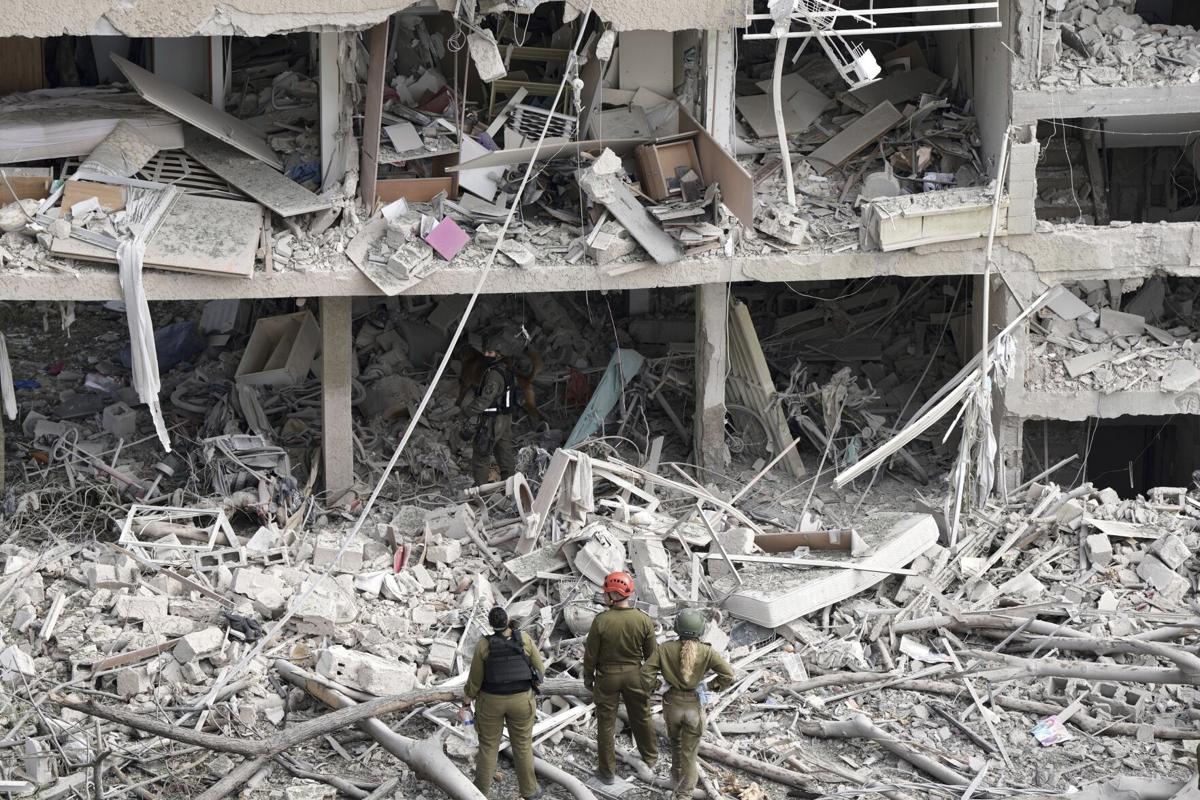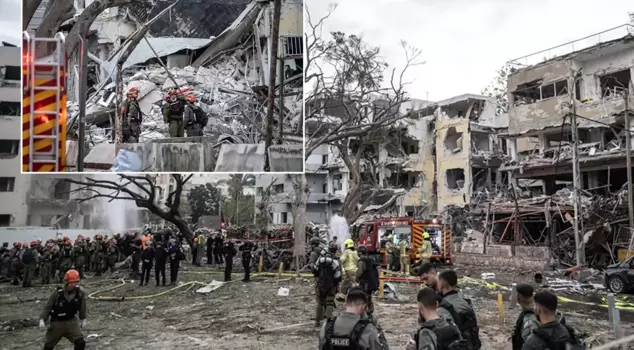In a developing story out of Tel Aviv, a Sky News report paints a grim picture of devastation on the city’s outskirts, following recent strikes. The video footage reveals widespread destruction, with entire apartment buildings reduced to rubble, leaving a community reeling from the impact.
The scene is one of utter chaos. Personal belongings, once safely tucked away inside homes, now hang precariously from the skeletal remains of buildings, a poignant reminder of the lives upended by the violence. The streets are littered with concrete and debris, a testament to the immense force of the strikes. The cleanup operation will be massive, a daunting task for a community already grappling with loss and uncertainty.

Despite the extensive damage and the palpable sense of vulnerability, the Sky News correspondent reports a surprising undercurrent of support for Prime Minister Benjamin Netanyahu among the local population. Many residents believe his actions against Iran were justified, a sentiment that speaks to the complex political landscape and the deep-seated tensions in the region. This unwavering support, even in the face of such adversity, highlights the resilience and determination of the Israeli people.
Adding another layer to this intricate situation is the welcoming attitude towards potential intervention from President Donald Trump. There’s a tangible hope that his involvement could expedite a resolution to the ongoing conflict, bringing much-needed stability to the region. This reliance on international diplomacy underscores the precarious nature of the situation and the urgent need for a peaceful solution.
However, amidst the support and the hopes for intervention, a pervasive sense of unease remains. The future actions of Iran are a significant source of concern, casting a long shadow over the already fragile peace. The uncertainty about what lies ahead is palpable, leaving residents on edge and the international community watching with bated breath.
The strikes on the outskirts of Tel Aviv have not only caused physical destruction but have also shaken the sense of security and normalcy for the affected community. The emotional toll on residents is immense, as they grapple with the loss of their homes, their belongings, and their sense of safety. The road to recovery will be long and arduous, requiring not only physical rebuilding but also emotional healing and a renewed sense of hope.
The international community has condemned the violence and called for restraint from all parties involved. The urgent need for de-escalation is paramount, as the situation teeters on the brink of further escalation. Diplomatic efforts are underway to find a peaceful resolution and prevent further bloodshed.

The events unfolding on the outskirts of Tel Aviv serve as a stark reminder of the devastating consequences of conflict. The human cost is immeasurable, and the ripple effects extend far beyond the immediate area. As the world watches, the hope remains that a path to peace can be found, bringing an end to the violence and allowing the affected communities to begin the long and difficult process of rebuilding their lives. The resilience and determination of the residents, coupled with the efforts of the international community, offer a glimmer of hope amidst the darkness.



